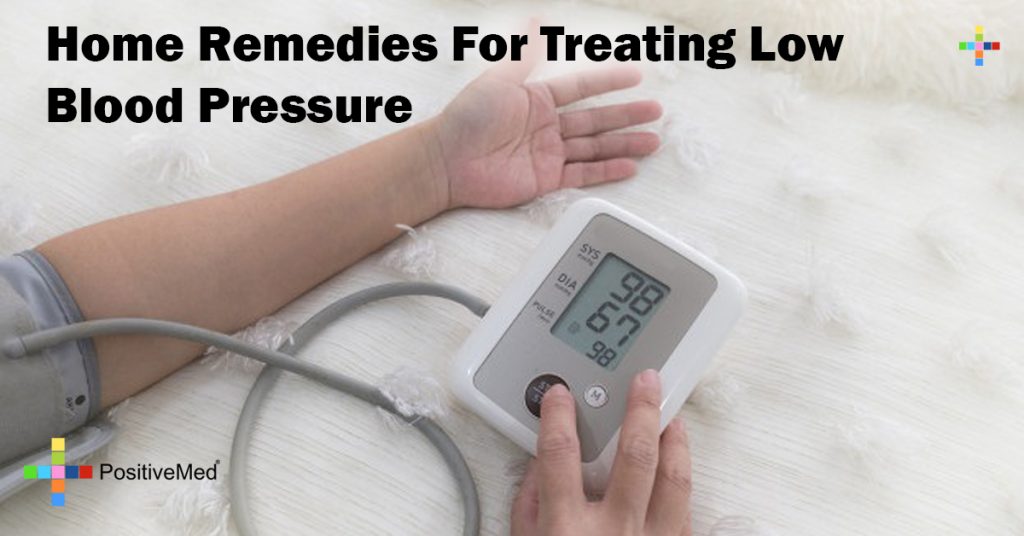
Home Remedies For Treating Low Blood Pressure
Hypotension (low blood pressure) is a common condition with a wide variety of causes, ranging from pregnancy to dehydration to nutritional imbalances. In many cases, managing the underlying cause can alleviate low blood pressure. This can frequently be done at home using nonprescription or natural methods.

– Drink more healthy fluids
Because dehydration contributes to low blood pressure, drinking more water can help provide relief. Blood volume increases as hydration levels return to normal. Sports drinks that contain sodium can also help restore balance, given that sodium raises blood pressure too.
– Add caffeine
Drinking coffee or tea can cause a temporary elevation in blood pressure levels. Many people who have low blood pressure may benefit from starting their day with either beverage. Hot chocolate later in the day can help too.

– Avoid alcohol
While alcoholics typically suffer from high blood pressure, alcohol can also causes dips in blood pressure due in part to its dehydrating effects. This occurs even when it is consumed in moderation. It can also interact with medications to cause unsafe drops in blood pressure.
– Dietary remedies
The recommendations for potential changes in diet are numerous and wide ranging, but many of them are far from unpleasant. Some of the most popular dietary additions include:
Raisins
Salt
Lean protain
Holy basil (herb)
Eating a low-carbohydrate diet is also recommended for raising blood pressure, especially for those with orthostatic hypotension.
– Avoid changing posture too quickly
This is an especially good way to combat having a head-rush or wave of dizziness caused by standing up with low blood pressure. A variety of changes in movement-related routines, such as sitting up more slowly in the morning, or mindful movement can help curtail the dizziness. Compression socks may also help if the head-rush is severe or causes fainting.
Using these at home methods, low blood pressure can be raised to a more comfortable and medically acceptable level; however, seeking the advice of a physician may be a good idea prior to making adjustments in treatment regimens.





